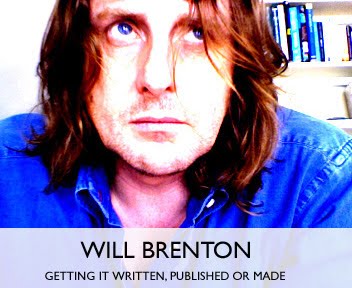When you look at the funding models for Publishing and TV, (which, trust me, is not something I wake up wanting to do), it is hard to imagine a more polarised situation. Yet last week at CMC in Sheffield they were the two prevalent industries coming together and looking to the future. The shaded area where their two circles of interest cross is New Media... or more specifically e-books (ie 'electronic' or perhaps lately 'enhanced') and apps. (I reckon if I'd written 'Apps' on a Post-it and stuck it to my back a queue would have formed of TV and Publishing execs asking how I made it...)
'Why?' I asked myself, not particularly enthusiastically but the question wouldn't go away... so I 'noodled' it a bit. Apparently that's Amercian slang for 'thinking.... Is it.... typical U.S. They have something perfectly good and have to change it... but don;t get me started...
Anyway... Publishing appears to employ a 'toe in the water' approach. It usually releases one of a title and, if it gains sufficient traction/interest/sales or whatever jargon means 'works', releases another. If it really 'works' there might be a sequel with a teeny beany plush, audio version and christmas special - but even all of that is barely getting wet above the ankles. The process is measured and careful, the production costs relatively low, and it all appears well managed from a risk point of view, quite comfy slippers and cocoa really. (Obviously there are the cases of two three and four book deals with big advances and much trumpeting, but if a title bombs the sequels will never see the light of day)
TV on the other hand talks big and brash and dives straight in with 52 episodes, budgets in the millions and high expectations of reach, retail sales and brand lifespan. It is a high risk, arse twitching strategy that leaves most folk in the business so stressed a sudden cough might cause them to shatter into a million pieces (TV people are secretly held together by gaffer tape under their Gilly Hicks shirts) - and it requires everyone around the boardroom to simultaneously nod vigorously so no-one can be held responsible individually for making a bad call.
So creatively are publishers in the best situation? They can certainly get a wider variety of titles to the audience, and there certainly seems to be much more love, care and creative freedom. But their problem is the returns/profile just doesn't compare to TV - and they begrudge the idea that they can do all the work to raise a book's profile, only for TV to sweep in, buy the rights and grab all the glory. I imagine that's why they've started to try and roll the TV rights into their publishing deals (Not really fair chaps...) and some have made rather bold strides towards becoming some form of production company in their own right.
I keep wondering how we ended up at such an impractical funding model for Kids TV. It wasn't always the case that 52 eps needed to be made from the get go... there were days, not so long ago, when it was much more normal to have 13 eps - or even 6 or 7. What seems to have happened is that the cut in broadcaster funding has inadvertently upped the ante. I reckon the cycle went like this;
Broadcasters reduce license fee paid - forcing producers to fill the financing gap from distribution/toy companies.
Distribution/Toy companies say 13 eps is not enough to drive licensing - so increase requirement to 26 eps.
Financing gap left even bigger as broadcasters can't afford to commission and majority fund so many episodes from each series they take. So percentage of budget paid as a license fee drops even further.
Distribution/Toy companies say larger investment required needs even more confidence in potential success, therefore need to be sure all channels will give high profile to shows, so make 52 eps - which becomes accepted as a norm. (This is a micro version of the Hollywood $200million blockbusters being the only ones that recoup)
Industry settles at a base level of 52 eps and roughly 3-4million pounds budget to raise. Which means it takes about 5 years from concept through commission to production being delivered - 7 years to income coming back. Everyone loses the will to live and seriously discusses opening cake shop.
What interests me (OK... 'interests' might be a bit strong...) What occurs to me about the New Meeja isn't enhancing a book or interacting with a TV show (unless, as I've blahh'ed before, the enhancements are about story and character, not just making characters somersault and flowers appear) but rather the fact that it can give back to programme makers the chance to test things out, let them evolve, beautify and streamline them in front of an audience, and potentially get the audience to pay them to do so.
If TV can begin to develop and release new formats and characters using apps in a way that properly presents character and story, they might find they can free themselves up from the shrinking broadcast market which is reducing not only in the number of commissions, but also the level of adventurousness. The unknown is whether making this route to an audience successful will attract a broadcast slot, or ultimately make it unnecessary....
Subscribe to:
Post Comments (Atom)


No comments:
Post a Comment